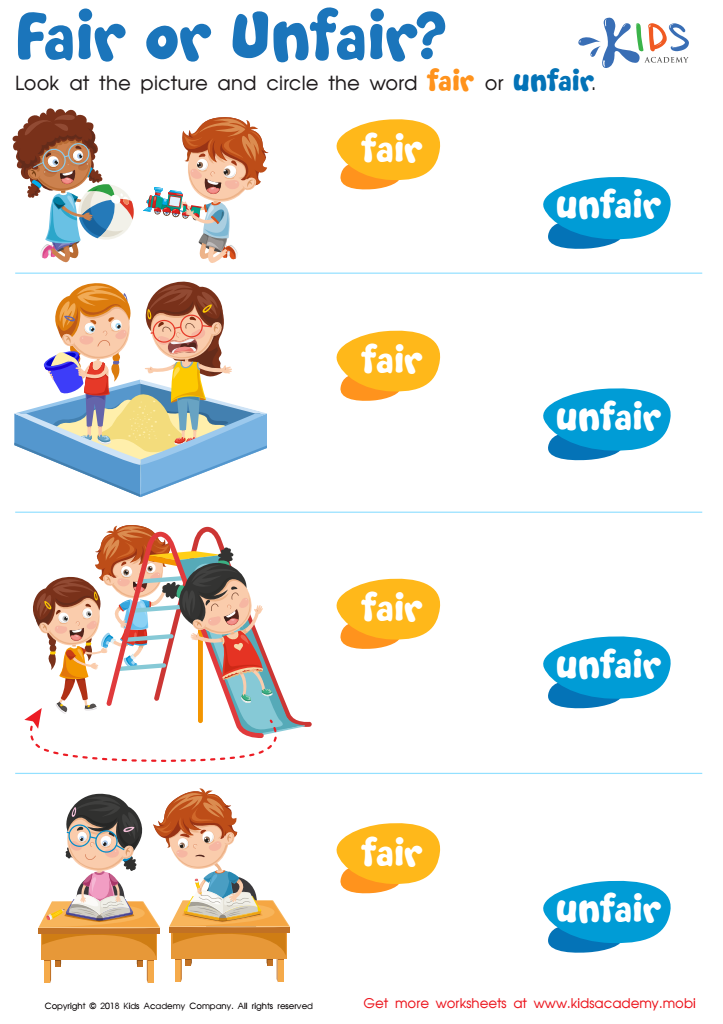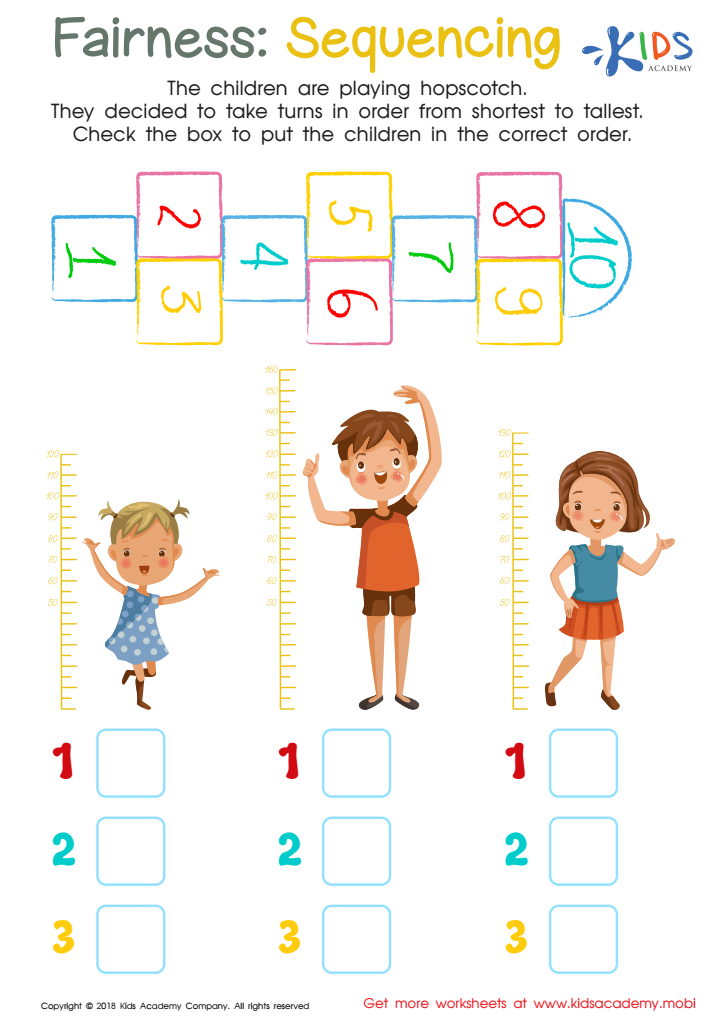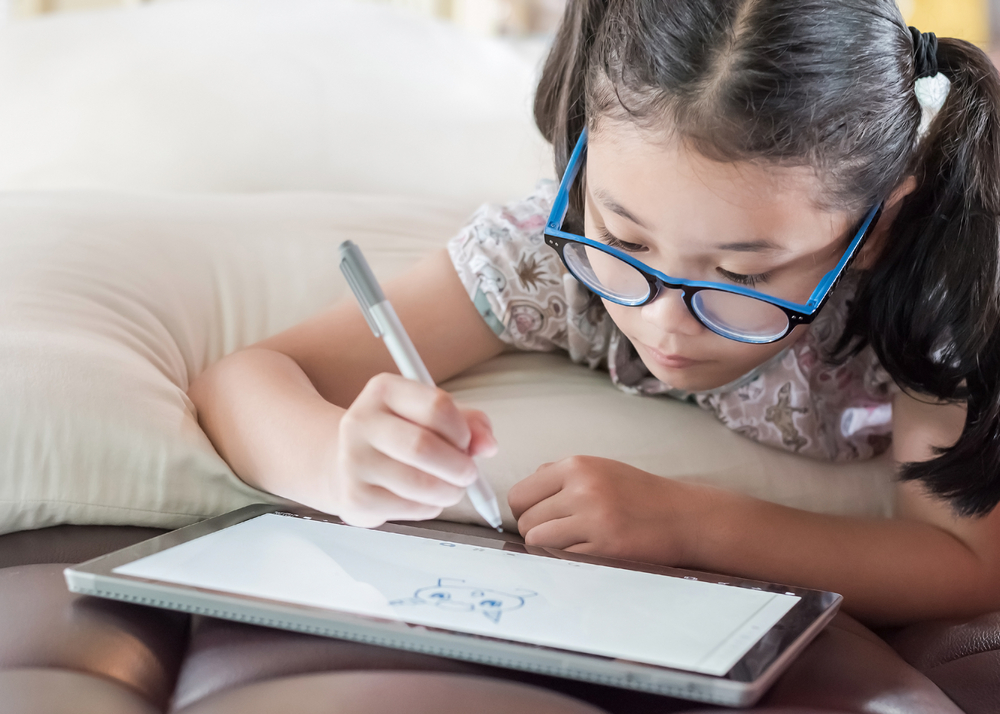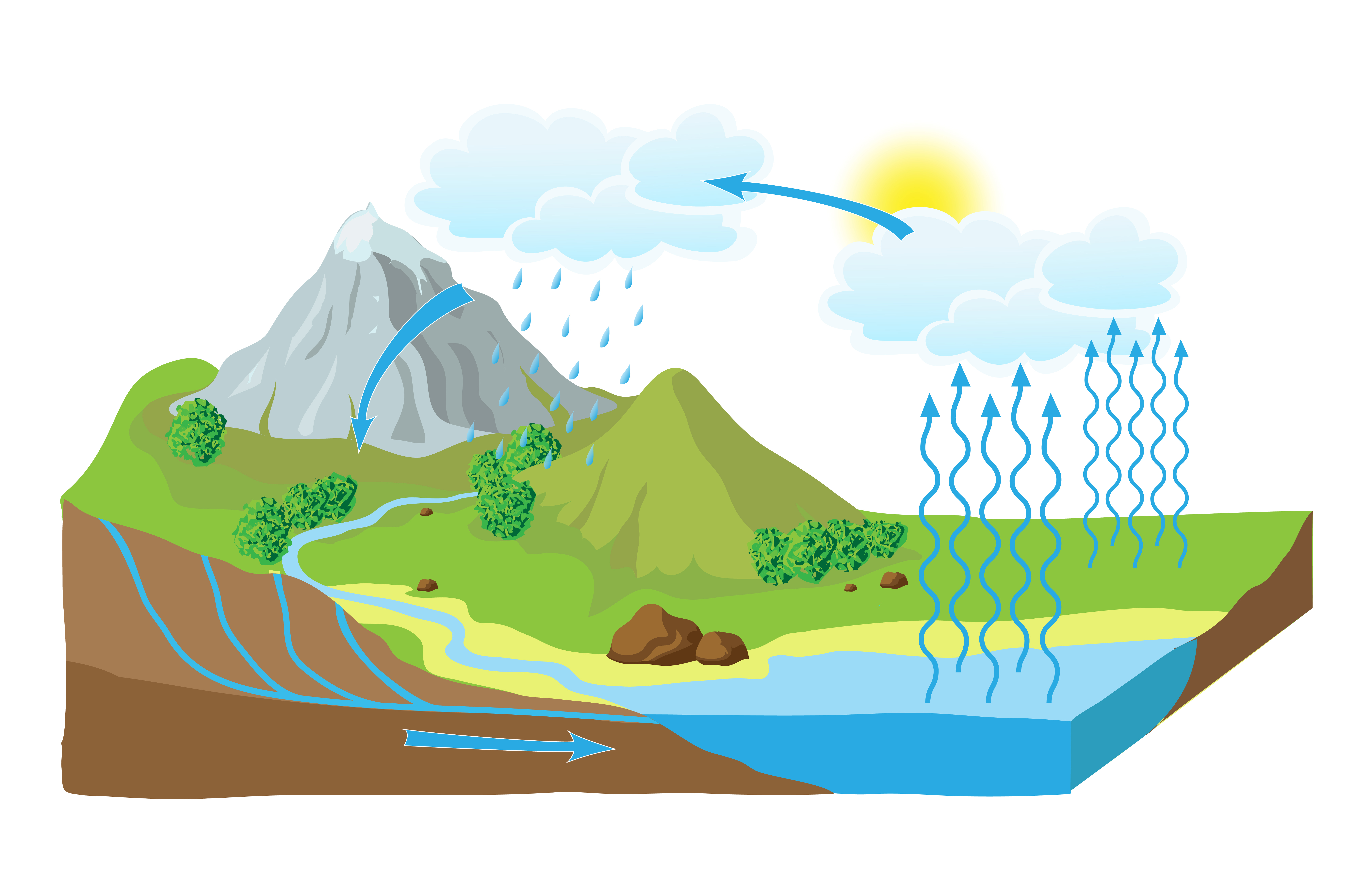Understanding fairness Worksheets for Kids
2 filtered results
-
From - To


Fair or Unfair Worksheet


Fairness: Sequencing Worksheet
Question/Answer
How does the mastery of the Understanding fairness skill affect a student's performance at an early age?
The mastery of the Understanding fairness skill at an early age significantly improves a student's performance by enhancing social interactions, collaboration, and empathy toward others. It fosters a positive classroom environment conducive to learning, encourages the development of strong moral values, and aids in conflict resolution, all of which are critical for academic and personal success.
What does the Understanding fairness skill mean when it comes to Kindergarten Community learning?
The Understanding fairness skill in Kindergarten Community learning involves teaching young children the principles of fairness, equality, and justice. It focuses on helping them recognize and respect differences, share resources equitably, take turns, and understand the importance of treating others with kindness and respect. This skill lays the foundation for developing empathy and ethical behavior in social interactions.
Why is the Understanding fairness skill important for Kindergarten students?
The Understanding fairness skill is crucial for Kindergarten students because it lays the foundation for developing empathy, collaboration, and conflict resolution skills. By learning what is fair and how to treat others equitably, children begin to navigate social situations more effectively, fostering a positive classroom environment and helping them build strong, respectful relationships with peers and adults.
 Assign to the classroom
Assign to the classroom












